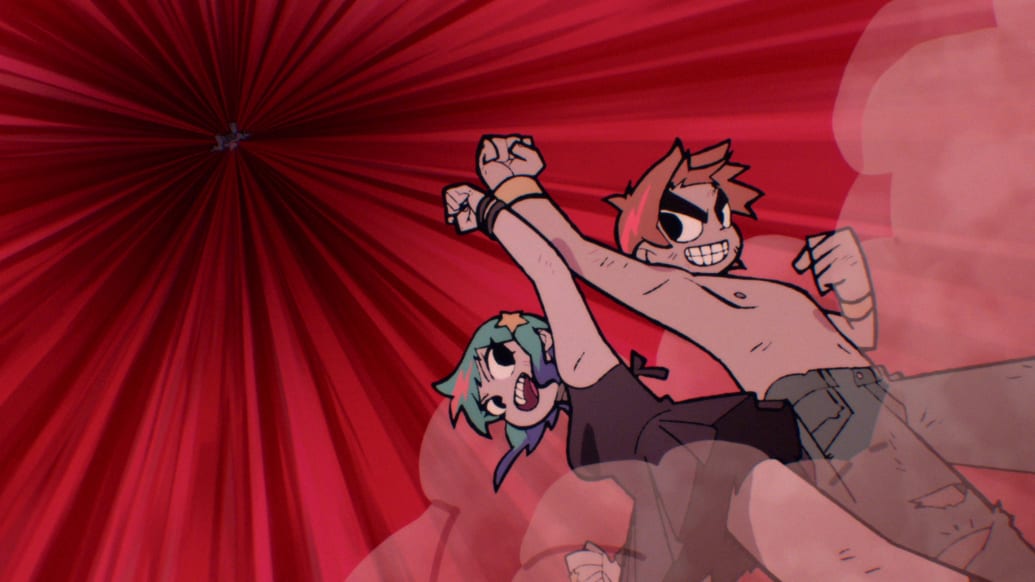An American kids’ cartoon is perhaps an unlikely beginning for a Japanese animation studio of Science Saru’s reputation for complex and experimental storytelling in the medium. But this particular one makes sense: Pendleton Ward’s Cartoon Network show Adventure Time was beloved for its looseness with visual rules; after all one of its marquee characters, Jake the Dog, can transform his body into all sorts of shapes. That flexibility would later extend into the show’s production, as the producers courted input from guest directors who would put their own visual stamp on the fantasy land of Ooo. “Food Chain,” directed and storyboarded by Masaaki Yuasa with creative direction from Eunyoung Choi, was Science Saru’s inaugural work.
Yuasa already had developed a reputation amidst animation enthusiasts for his wild and surrealist works, such as his 2004 film Mind Game and 2008 series Kaiba. In Yuasa’s hands, it’s no surprise that “Food Chain” is as strange as it is, even for Adventure Time: a hallucinogenic biology lesson that constantly ebbs and flows, with Finn and Jake transforming from worms to predatory birds and then some as they cycle through a food chain. It also has a musical number. Since it’s only 11 minutes long, with no context required, it’s an ideal place to start for anyone looking for something akin to Scott Pilgrim Takes Off’s more psychedelic moments – and to this day, it stands as one of the most succinct examples of Saru’s taste for strange, fluid animation.
Keep Your Hands Off Eizouken!! (2019)
This adaptation of the manga by Sumito Ōwara is a perfect next step after Takes Off for anyone who is unfamiliar with anime as a medium. Directed by Yuasa, the series follows three high school girls as they start an animation club. Midori Asakusa is obsessed with world-building and design. Tsubame Mizusaki is a talent for character animation. Their friend Sayaka Kanamori isn’t too bothered by the craft, but she has a mind for business.
Between this trio and the other oddballs at their school, Keep Your Hands Off Eizouken!! paints a joyous picture of what’s great about anime, and the passion of artists in the industry—which, sadly, is often exploited. The show is aware of those difficulties but remains pretty idealistic, as the girls build their projects through can-do spirit. They literally build them too: Their design work is depicted as a combination of sketch art and a construction site.
Through its detailed and rather educational depictions of anime’s artistic processes, the series captures the joy not just of bearing witness to imagined and hand-drawn worlds, but also the joy of making them. Scott Pilgrim, in its many iterations, has been a love letter to anime. Here, you can see a love letter to the people who make it.
The Night is Short, Walk on Girl (2017)
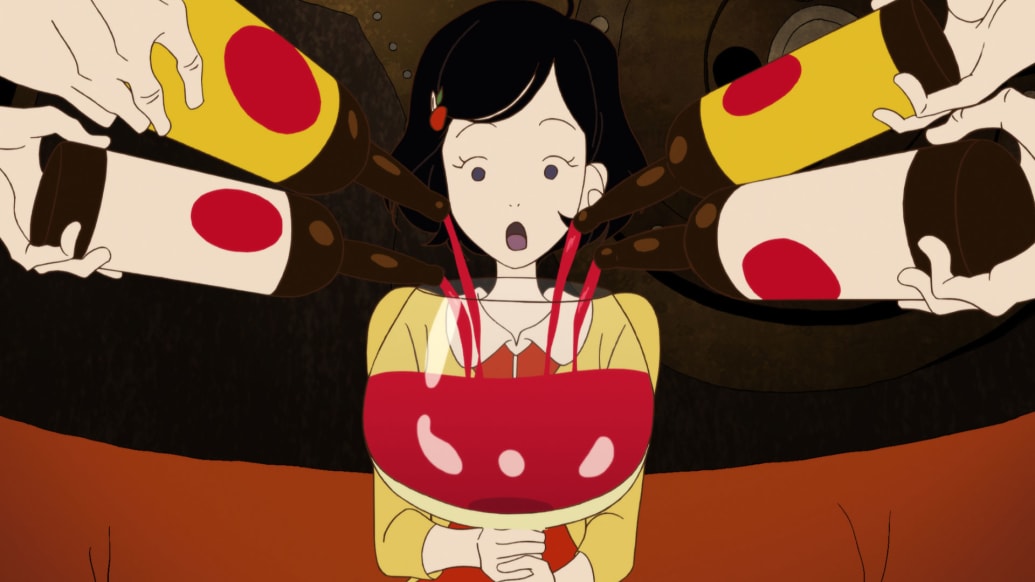
Fathom Events
2017 was also the beginning of an immensely busy period for Yuasa. He kicked off the year with The Night Is Short, Walk on Girl, with his Little Mermaid-riff Lu Over the Wall following closely behind. Two years later came the melancholy romance Ride Your Wave (2019)—and that’s just the feature films.
My personal favorite is Walk on Girl, an eccentric rom-com with a Tex Avery-like visual sensibility. The film follows a man known only as Senpai, as he tries to find a way to ask out his crush: an also-unnamed woman, Kohai. His convoluted and hare-brained scheme plays out amidst the escalating mayhem of one long night of partying, the film viewing it from both character’s perspectives. It’s a film as in love with the surreal chaos of Kyoto nightlife and the frivolities of campus life as Senpai is in love with Kohai. Characters contort and stretch throughout a long night of drunken escapades, full of many, many wild digressions (one of which is a 15-minute musical farce where multiple parties of people confess their feelings to each other).
Walk on Girl takes the director’s limitless imagination to the nervous beginnings of dating, like a moment of low self-esteem resulting in a stampede of little cowboys representing libido. Though there aren’t any evil exes to fight, there’s a lot of common ground with Scott Pilgrim—namely the gauntlet of ridiculous challenges Senpai has to overcome in the name of love, trials that gradually push him to mature and find some self-respect.
It’s also a delightful recollection of work from Yuasa’s past: The film plays as an informal sequel to pre-Saru series The Tatami Galaxy; like Walk on Girl, it’s an adaptation of books by Tomohiro Morimi. (In 2022, Saru returned to Morimi’s work with an anime of Tatami Time Machine Blues, directed by Yuasa’s protégé Shingo Natsume.) It’s whimsical and absurdist but not overbearingly so. Because of its connections to prior work, The Night is Short, Walk on Girl may seem a little daunting at first. But give it a chance, and you might just fall in love with it.
Devilman Crybaby (2018)
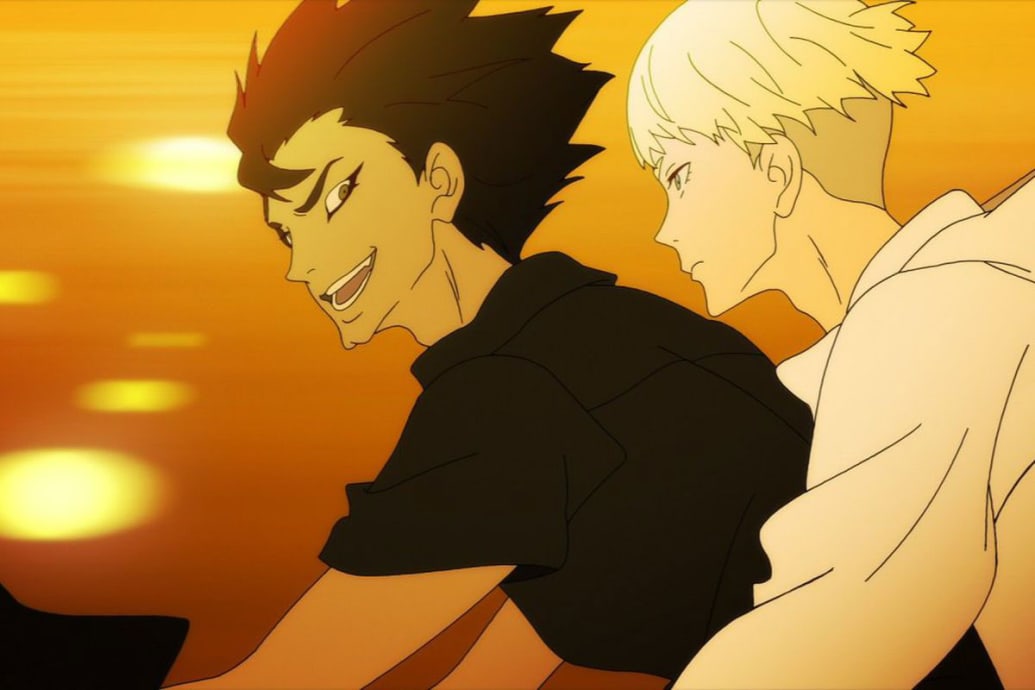
Devilman Crybaby felt like a watershed moment for the studio, bolstering Science Saru’s global popularity and visibility, while also challenging its own boundaries. It often dealt with dark, mature thematic content, and a glance at Yuasa’s filmography proves this to be a common interest of his. But Devilman Crybaby feels like the most potent (and most popular) example of that aim. It’s also among Yuasa’s very best works.
The Netflix-exclusive series (the first in a string of collaborations between Saru and the platform) is a grueling, cutting update of Go Nagai’s famous Devilman manga, dragging its biblical tragedy writhing and screaming into the 21st century. The basic premise is the same as Nagai’s story: In a world where demons lurk in plain sight, the gentle and unassuming Akira Fudo has his human soul combined with the body of a demon to become Devilman. It’s all thanks to his shady friend Ryo Asuka, who’s on a mission to save humanity from those ancient fiends.
Even though its art style looks quite clean and polished compared to something like Ping Pong, Yuasa gave the animation of Devilman Crybaby a sense of raw aggression, appropriate for its story of hell coming to earth. The first episode sees a club full of frenzied, naked patrons undergo grotesque transformations into demons—someone gets their head bitten off by monster boobs—before Akira undergoes his own fateful metamorphosis into Devilman.
Despite the drastic tonal difference between the two, anyone who found themselves interested in Scott Pilgrim Takes Off’s more mature themes would be doing themselves a favor by checking out Devilman Crybaby. It’s shocking, but also thoughtful: Yuasa seasons Nagai’s anti-war allegory with extra ruminations on how social media propagates hatred. The director creates a biting portrayal of online spaces, showing how fear-mongering rhetoric can quickly be wielded disingenuously to facilitate mass death. But as apocalyptic and despairingly misanthropic as it gets, Devilman also seeks out a seed of hope: that those left behind may yet change their ways. It’s as captivating as it is soul-destroying—not to mention that it features one of the wildest anime running styles this side of Naruto.
Ping Pong: The Animation (2014)
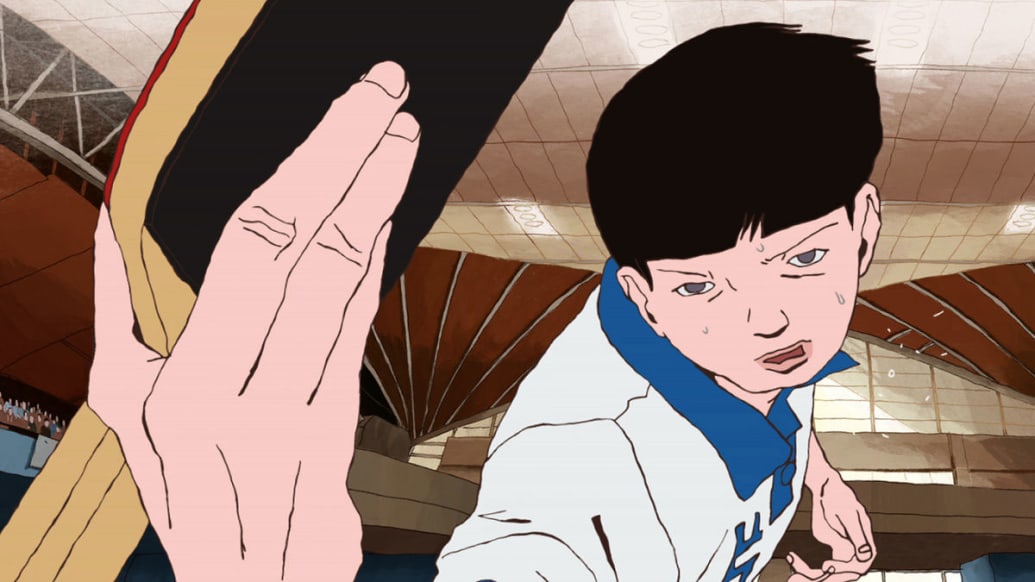
FUNimation Entertainment
In July 2014, not long after “Food Chain” aired, came the Yuasa-directed Ping Pong: The Animation, a TV adaptation of the manga by Taiyo Matsumoto. It’s one of the best series to come out of Science Saru, if not the last decade of anime: smashing any visual expectations associated with “anime” to pieces. The show follows prodigal ping-pong players Peco and Smile (the name is ironic; he rarely smiles), odd-couple childhood friends with a fierce sense of competition between them. Through their perspectives, and in the hands of Matsumoto and Yuasa, the humble tabletop sport becomes a mythic struggle between egos; both Peco and Smile are desperate to prove themselves as they unleash their emotional baggage through a battle of paddles and wits.
The animators pushed Matsumoto’s art to a giddy extreme as it transforms table tennis into a hallucinogenic trip through the psyches of two childhood friends—rendering a crucial statement of intent for the studio’s visual interests. It also wouldn’t be the last collaboration between Yuasa and Matsumoto; in fact, Yuasa’s work with Matsumoto book-ended his career with Saru. Eight years after Ping Pong, the pair collaborated on the 2021 historical rock opera (yes, really) Inu-Oh. Matsumoto served as character designer on the film, Yuasa’s final work before stepping down as head of the studio. If Scott Pilgrim Takes Off is a taster of Saru’s visual imagination, this is the main course.
The Heike Story (2021)
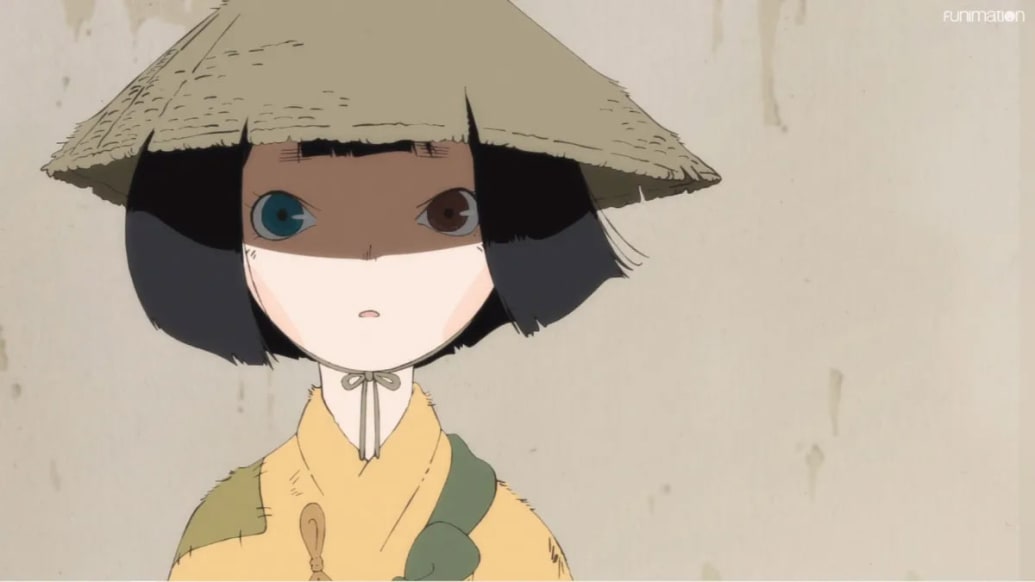
FUNimation Entertainment
Handily among both the best and most undersung projects to come out of the studio is The Heike Story. It’s particularly notable for being one of the first Saru works made without Yuasa, who had stepped down from his role as president in 2020. Acclaimed ex-Kyoto Animation director Naoko Yamada (A Silent Voice, K-On!) had joined to adapt the classic historical epic, telling of the downfall of a powerful clan.
In The Heike Story, Yamada makes a wistful, tragic drama, out of a momentous regime change in 12th-century feudal Japan. Up to this point, Yuasa had directed the majority of Saru’s work, with plenty of in-house talent putting their stamp on individual episodes or sequences, but rarely in the driver’s seat. As Yuasa takes a hiatus from work, others—like Yamada and Góngora—have stepped into that space to tell unique, but very Saru-style stories.
Set amidst the upheaval of the Genpei War, a young biwa player—herself named Biwa—watches her father killed in front of her for expressing dissenting opinions about the powerful Taira clan. She can see the future in one of her heterochromatic eyes, and she witnesses the clan’s disastrous future. A man from the Taira clan who has a similar ability to see the deceased,Taira no Shigemori, adopts her. The mix of heartbreak and political intrigue that follows is emblematic of the studio’s interest in a wealth of mature and complex stories. Not only that, but it’s also an exciting look at what the studio’s future holds as Yuasa takes a step back, allowing newer voices into the fold.

